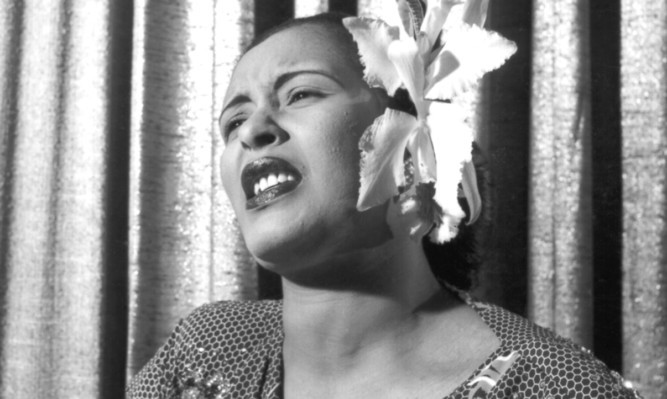
She was only with us 44 years, many of those painful ones, but Billie Holiday changed music forever.
April 7 will be exactly a century since she was born, and Lady Day is still adored by music fans, young and old, across the world.
In fact, this summer’s Burton Agnes Jazz & Blues Festival, in the grounds of a glorious Elizabethan stately home, will see her celebrated.
Sadly, there was previous little posh or glorious about much of Holiday’s life, and many of her biggest fans reckon it was the sheer misery she endured that brought out such powerful singing.
She was plain old Eleanora Fagan back then, born out of wedlock to Clarence and Sadie.
Mom had been thrown out the house at 19 for getting pregnant, and Pop soon left mother and baby to seek his fortune as a jazz guitarist.
The girl who would become Billie was soon carted off to relatives.
She played truant so often that school permanently kicked her out by the age of 11.
It was at that age, too, when a neighbour tried to rape her.
By 12, she ran errands for a house of ill repute, seeing things no child should ever set eyes on, but by then, she was used to all the horrors of grown-up life.
Before she was 14, desperate for money and gullible, she was working alongside the other fallen women, and a jail sentence would follow.
A bit grim? Another lost soul? Not Billie Holiday.
Her time after jail was spent in a workhouse, but she was sure there had to be something else she could do, and folks seemed to like it whenever she started her singing.
She looked for work as a singer at local clubs, was accepted pretty fast, and wowed all who heard her.
Needing a cooler moniker, she took Billie from Billie Dove, an actress she admired, and Halliday, as it was first spelled, from Clarence Halliday, who was possibly her real father.
The great producer, John Hammond, dropped by to see one singer, but also heard 18-year-old Billie and signed her on the spot.
Many musical brains have debated what it is about Billie, but almost all agree that you can hear in her voice that she has really lived what she sings about.
In years to come, once she was famous, it would be addictions and rotten men who would ensure the misery continued.
The irony was, the more she suffered, the longer that wailing, bewitching, sad voice would move the world and make them buy her records.
Her early record labels took advantage, paying her a flat rate which meant she didn’t get royalties as sales went through the roof.
Briefly, she was a singer with Count Basie, but she was sacked, accused of being temperamental.
Her stint with another jazz giant, Artie Shaw, came to an end because of racism told to take the service elevator at a hotel while the white musicians took the one for the general public, she exploded.
“I was never allowed to visit the bar or dining-room, and had to exit through the kitchen,” she’d reveal.
It’s true that she often did herself no favours, with booze and drugs, but those were crutches for a tortured soul, abandoned almost from the day she was born.
Mister, her daft big dog, was possibly the best guy she ever had, and she adored him, even taking him to gigs.
Louis McKay, her third husband, was just the latest to knock her about, take her earnings and give nothing back.
In some ways, it’s no surprise she gave up on life at just 44, and we should just be grateful Billie Holiday left such classic recordings.

Enjoy the convenience of having The Sunday Post delivered as a digital ePaper straight to your smartphone, tablet or computer.
Subscribe for only £5.49 a month and enjoy all the benefits of the printed paper as a digital replica.
Subscribe